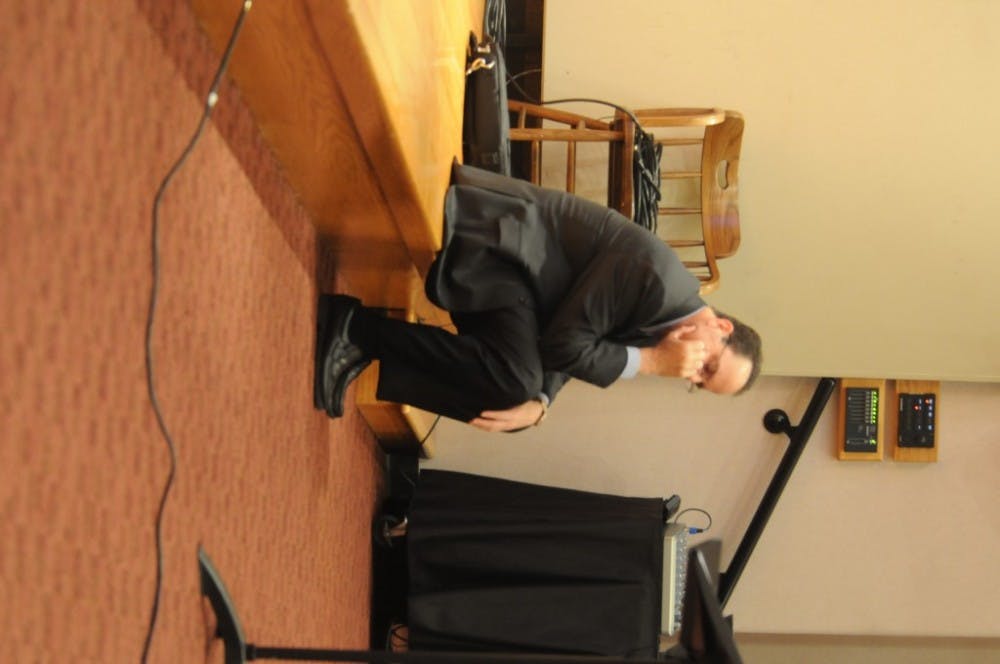Students braved the snow March 3 to hear Daniel Asia, composer and professor of music at the University of Arizona, speak on the connections between classical music and Jewish prayer. Asia spoke about music as a form of religious communication while showcasing his pieces, including songs from his recent album, “Of Songs and Psalms: Symphony No. 5,” commissioned for Israel’s 60th birthday.
Asia spoke of the ways Jews can become close to God: studying the Torah, following the commandments, observing the Sabbath and praising God. By practicing music as a means of praise and worship, music becomes an important part of the religious experience.
Psalms have always related faith to rhythm and lyricism. In later times, Jewish composers converted drinking tunes into hymns because people were familiar with the melody.
Asia argues that music is approached in much the same way as Jews approach God — with “radicalized amazement.”
“Music is reaching out to a land that lies beyond the reach of verbal propositions,” Asia said. “Both prayer and music allow us to enter into the realm of miracles and into the mystery of the universe with an open heart and an open mind.”
Asia’s first piece, “Songs of Transcendence,” is based on three songs in the Jewish Sabbath prayer service. He encouraged listeners to close their eyes and listen carefully to the progression of the music, looking for similarities and differences throughout.
The piece moved forward at a charismatic, beckoning pace, giving the classical instrumentation a human feel. Much of the music sounded like it would fit in an early-era musical or in the soundtrack to a film.
“It was interesting to listen to music as an intellectual exercise rather than letting it wash over you. It was an active listening, and rather than shutting the brain off you had to engage with the music,” said senior Paige Ransbury.
Asia stressed that even people with very little knowledge of music theory or composition could understand his pieces. Just as everyone who participates in prayer does not need to be a religious scholar, engaging with classical music does not require formal training.
“We relate to music in a very fundamental way,” he said. “Just as people are born, live, and die, music starts, builds and reaches a conclusion where it ends.”
His second piece, “Why (?) Jacob,” was written for a friend who died during a conflict in Israel and the piece featured a mix of quiet piano melodies, loud crashes on the keyboard and periods of silence.
Asia said music is made up of moments of sound and silence, made sacred by the melodies and texts attached to them. Each composer adds his own influences and style into a piece, just as Jewish scholars must do when interpreting the Torah.
“Judaism is a religion of sacred moments. We practice rituals to make moments sacred. Music lets us find and experience sacred moments in time,” Asia said.
The final selection was the last two movements of “Breath in a Ram’s Horn,” “Rosh-Hashanah/Yom Kippur” and “My Mother’s Name is Charlotte and My Father’s Name is Bernard.” The compositions were based off Paul Pines’ writings on growing up Jewish in America.
Junior Herbie Lutvak, a Hillel member, said he is a great admirer of Asia’s work.
“He’s got an interesting style with a lot of Jewish influences. Tons of artists combine religion and art, but nobody else does it in quite an obvious and relatable way,” Lutvak said.


